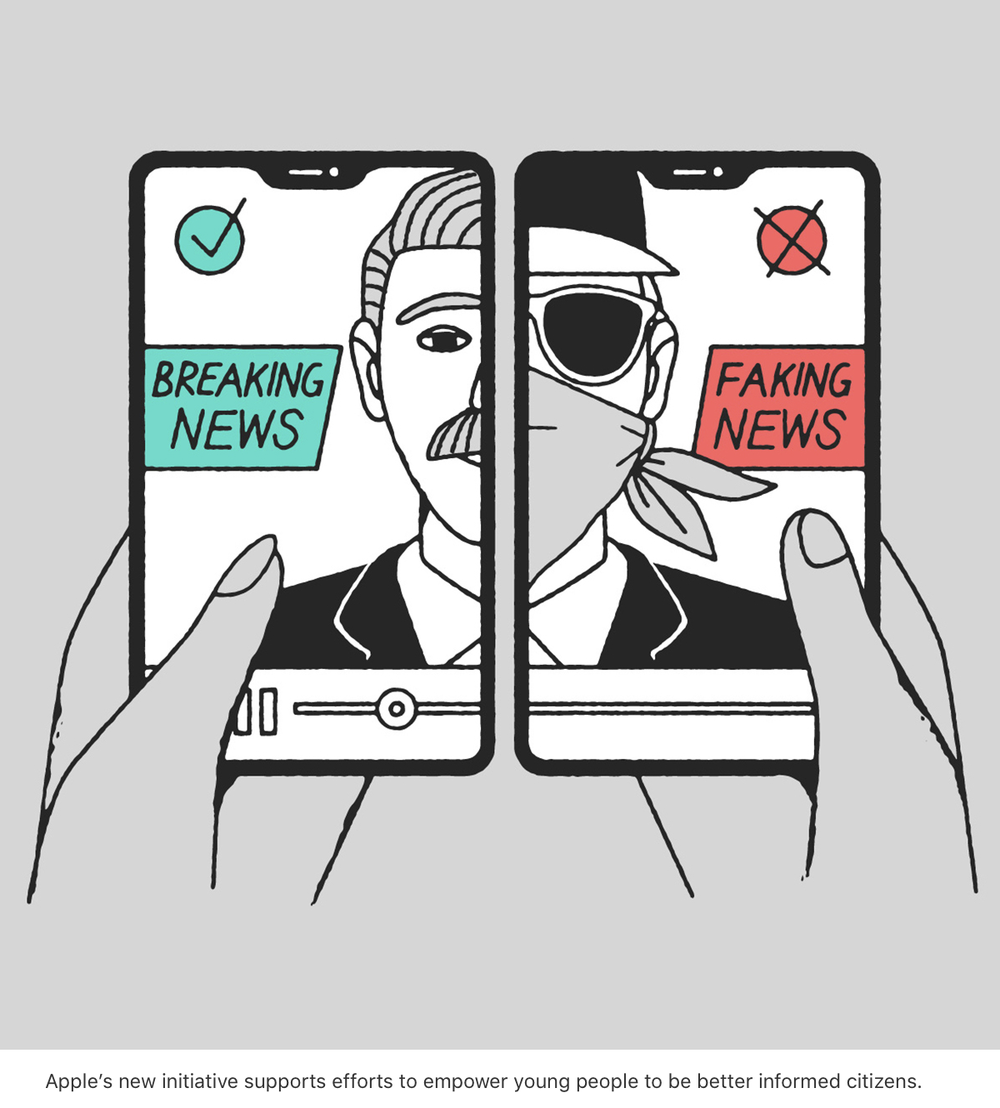Apple has announced a new initiative in support of leading nonprofit organizations in the US and Europe that offer nonpartisan, independent media literacy programs.
The News Literacy Project (NLP) and Common Sense in the US and Osservatorio Permanente Giovani-Editori in Italy will each receive support from Apple to advance their efforts in empowering young people with the critical thinking skills necessary in today’s digital age, says CEO Tim Cook.
“Apple News is committed to presenting quality journalism from trusted sources,” adds Lauren Kern, editor-in-chief of Apple News, in a press release. “We’re thrilled that Apple is supporting these important organizations to train the next generation on how to seek out accurate and reliable information amid an increasingly complicated news landscape.”

The News Literacy Project (NLP) is a nonpartisan national education nonprofit that “empowers educators to teach middle school and high school students the skills they need to become smart, active consumers of news and other information and engaged, informed participants in our democracy.” Since NLP’s signature education platform, the Checkology virtual classroom, was released in May 2016, more than 17,800 educators in all 50 states, the District of Columbia, three US territories and 104 other countries have registered to use it, and more than 124,000 students have benefited from its lessons.
Common Sense is a nonprofit organization “dedicated to helping kids and families thrive in the digital age.” Common Sense Education supports K-12 schools with tools to help educators empower the next generation of digital citizens. The organization’s award-winning Digital Citizenship Curriculum prepares students with lifelong habits and skills, supports teachers with training and recognition, and engages families and communities with helpful tips and tools.
Osservatorio Permanente Giovani-Editori is Italy’s leading independent organization in citizenship education focused on media literacy projects. For over 18 years, Osservatorio’s mission has been “to help today’s young people become citizens of tomorrow, participate more in our democracy and develop critical thinking that sets them free.”
Osservatorio operates in education by training high school teachers, who then bring Osservatorio’s media literacy projects into their classrooms with the goal of increasing student curiosity, thirst for knowledge and critical thinking. As students compare different quality news sources, they learn to distinguish between reliable journalism and fake news.
